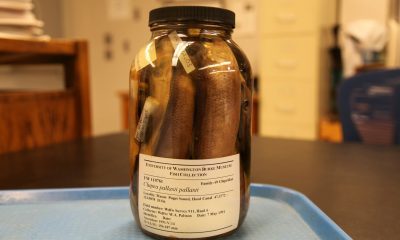By Gwyn Wright via SWNS
A cure for acne could be on the horizon after 29 genes that put people at risk from the condition were identified by scientists.
The insights the genes provide give doctors clues about possible targets for treatment and help them identify people at the highest risk of suffering a severe form of the condition.
via GIPHY
Researchers in London and Brisbane, Australia analyzed scans of the whole genomes of 20,165 people with the acne and 595,231 people without it.
In total, 29 new genetic variants associated with the condition were found and the study confirmed 14 of the 17 variants already known to be associated with the condition, bringing the total number of variants to 46.
Many of the genes they uncovered are associated with the condition and are also linked to other skin and hair conditions.
The research team believe these insights will help them understand the causes of acne, which could be due to a range of factors which are not yet known.
A link between the genetic risk of acne and disease severity has also been uncovered in the research.
While more research is needed, the discovery could help find people at risk of severe disease and intervene early to help them.
Acne affects four in five teenagers and causes spots, cysts, pigment changes and even scarring.
It is most often spotted on the face but can also be found on the chest and back.
The condition often damages the mental health and self-esteem of sufferers, particularly among teenagers.
Study author Professor Catherine Smith said: “Despite major treatment advances in other skin conditions, progress in acne has been limited.
“As well as suffering from the symptoms of acne, individuals describe consequent profound, negative impacts on their psychological and social wellbeing.
“It is exciting that this work opens up potential avenues to find treatments for them.”
Study author Professor Michael Simpson said: “We know that the causes of acne are complicated, with a mix of biological factors such as genetics and hormones, and environmental factors.
“Understanding the genetics of the condition will help us to disentangle some of these causes, and find the best way to treat the condition.
“This is a really promising area for further study, and opens up a lot of avenues for research.”
The findings were published in the journal Nature Communications.

 Parenting5 days ago
Parenting5 days ago
 Lifestyle4 days ago
Lifestyle4 days ago
 Broadcast1 week ago
Broadcast1 week ago
 Broadcast6 days ago
Broadcast6 days ago
 Money1 week ago
Money1 week ago
 Pets1 week ago
Pets1 week ago
 Environment6 days ago
Environment6 days ago
 Health1 day ago
Health1 day ago






















